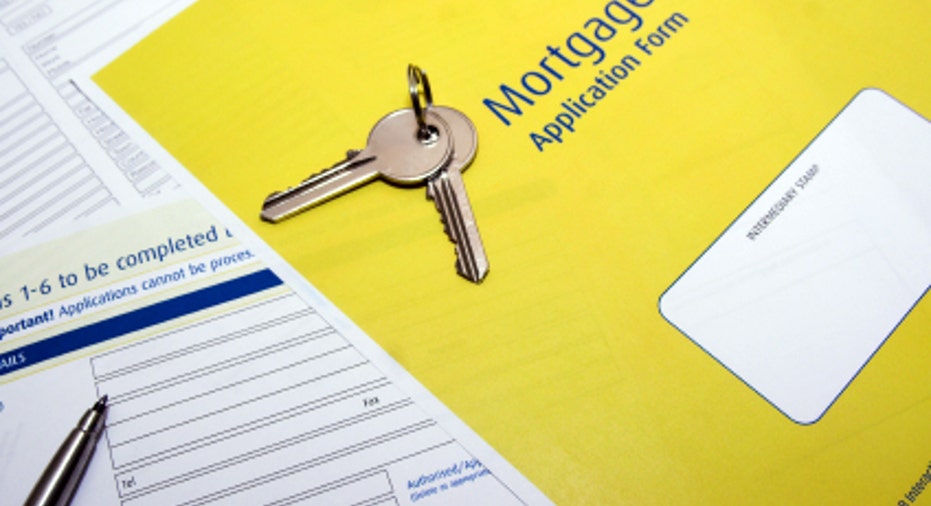Wow! Mortgages Jump Almost Half a Percent

Mortgage rates spiked to their highest levels this week since July 2011, causing frustration among homebuyers and refinancers who were caught by surprise.
Compare Mortgage Rates in Your Area
The benchmark 30-year fixed-rate mortgage rose to 4.61 percent, compared with 4.12 percent last week, according to the Bankrate.com national survey of large lenders. The mortgages in this week's survey had an average total of 0.29 discount and origination points. One year ago, that rate stood at 3.89 percent. Four weeks ago, it was 3.99 percent.
The 30-year fixed hasn't been this high since Bankrate's survey on July 27, 2011, when the mortgage rate averaged 4.74%. This is the largest one-week rise since the financial crisis of October 2008.
On top of that, the benchmark rate on the 30-year fixed was 3.6% May 8 -- so it has climbed more than a percentage point in seven weeks.
The benchmark 15-year fixed-rate mortgage rose to 3.73% this week, compared with 3.3% last week. The benchmark 5/1 adjustable-rate mortgage rose to 3.45% from 2.99%. The benchmark 30-year fixed-rate jumbo mortgage rose to 4.75% from 4.29%.
Weekly national mortgage survey
Results of Bankrate.com's June 26, 2013, weekly national survey of large lenders and the effect on monthly payments for a $165,000 loan: 30-year fixed 15-year fixed 5-year ARM This week's rate: 4.61% 3.73% 3.45% Change from last week: +0.49 +0.43 +0.46 Monthly payment: $846.85 $1,198.28 $736.33 Change from last week: +$47.66 +$34.86 +$41.57
How did this happen?
Rates started climbing slowly in mid-May on speculation that the Federal Reserve was preparing to trim the $85 billion-per-month bond purchase program that has long kept a lid on rates. When the Federal Open Market Committee wrapped up its meeting last week, many observers expected the Fed to calm the markets. Instead, the Fed did the opposite.
Mortgage rates shot up once Federal Reserve Chairman Ben Bernanke told reporters that the Fed plans to slow the bond purchases this year and end the program in mid-2014, as long as the economy continues to improve. Even analysts who follow rates closely were shocked at how quickly rates have jumped since then.
"We saw a full percentage increase in less than a month," says Bob Moulton, president of Americana Mortgage Group in Manhasset, N.Y., adding that half the increase happened since the Fed's press conference. "My customers are dismayed and disappointed."
The stock market sank on Bernanke's comments, and a wave of investors immediately pulled money out of the bond market. When there's less demand for mortgage and Treasury bonds, mortgage rates tend to rise. Should borrowers lock or wait?
The financial markets are extremely volatile right now, says Cameron Findlay, chief economist for Discover Home Loans.
Homeowners who missed the opportunity to refinance should wait for the markets to calm if they think refinancing now wouldn't save them much, he says. But he adds that homebuyers and those who are still paying 6 percent or higher on their loans shouldn't take the chance.
"By historical standards, rates are still extremely low," he says.
Donna Angeloni, vice president of lending for the Philadelphia Federal Credit Union, says the lender has been receiving an increased volume of calls from borrowers who want to lock a rate. She says rates may drop a little in the next few days, but, as usual, there's no guarantee.
"I'd wait a few days and then lock if they drop back down," she says. "If they hold steady, then I wouldn't wait too long."
Another strategy would be to ask if your lender offers a float-down option, Moulton says. With a float-down, the borrower has the right to have the rate reduced if rates fall. Not all lenders offer this option, but it's worth asking the lender, he says. Some borrowers opting for adjustable-rate loans
Many homebuyers who were expecting to pay 3.5% in interest on their 30-year mortgages and are now faced with higher rates, have chosen a 10-year ARM loan to keep the monthly payments close to their expectations.
With a 10-year adjustable-rate mortgage, the rate is fixed for the first 10 years and resets after that. The average rate for a 10/1 ARM was 4% in Bankrate's weekly survey.
"We are giving borrowers the menu and saying, 'These are your options now,'" Moulton says. "Some people are staying with a 30-year because they like the security. But some took a little harder look in terms of how long they are going to stay in the house, and they have chosen to go with the 10-year."



















